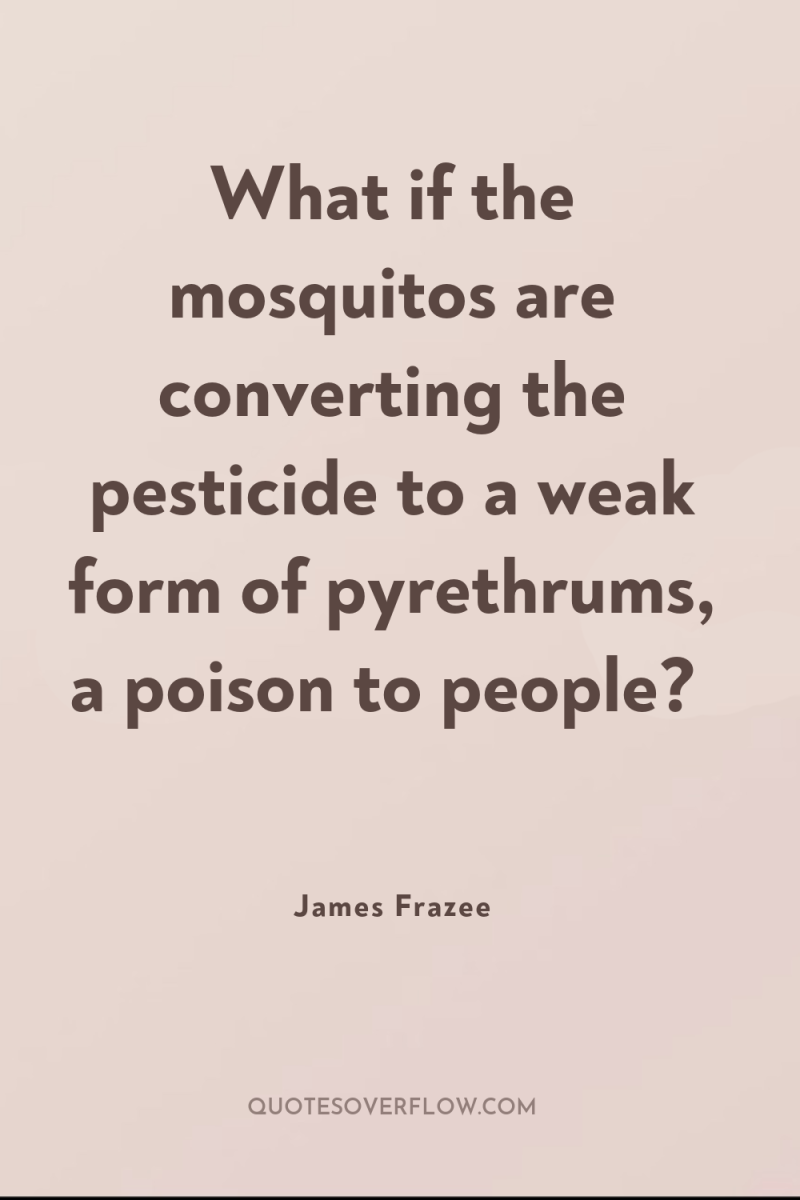
1
What if the mosquitos are converting the pesticide to a weak form of pyrethrums, a poison to people?James Frazee
2
She recalled him as a forceful and witty speaker with a ready repartee and a penetrating voice. He had once, for example, put down a spokesman for the pesticide industry with a remark that people still quoted at parties: "And I presume on the eighth day God called you and said, 'I changed my mind about insects!John Brunner
3
THE ORGANIC FOODS MYTHA few decades ago, a woman tried to sue a butter company that had printed the word 'LITE' on its product's packaging. She claimed to have gained so much weight from eating the butter, even though it was labeled as being 'LITE'. In court, the lawyer representing the butter company simply held up the container of butter and said to the judge, "My client did not lie. The container is indeed 'light in weight'. The woman lost the case. In a marketing class in college, we were assigned this case study to show us that 'puffery' is legal. This means that you can deceptively use words with double meanings to sell a product, even though they could mislead customers into thinking your words mean something different. I am using this example to touch upon the myth of organic foods. If I was a lawyer representing a company that had labeled its oranges as being organic, and a man was suing my client because he found out that the oranges were being sprayed with toxins, my defense opening statement would be very simple: "If it's not plastic or metallic, it's organic." Most products labeled as being organic are not really organic. This is the truth. You pay premium prices for products you think are grown without chemicals, but most products are. If an apple is labeled as being organic, it could mean two things. Either the apple tree itself is free from chemicals, or just the soil. One or the other, but rarely both. The truth is, the word 'organic' can mean many things, and taking a farmer to court would be difficult if you found out his fruits were indeed sprayed with pesticides. After all, all organisms on earth are scientifically labeled as being organic, unless they are made of plastic or metal. The word 'organic' comes from the word 'organism', meaning something that is, or once was, living and breathing air, water and sunlight. So, the next time you stroll through your local supermarket and see brown pears that are labeled as being organic, know that they could have been third-rate fare sourced from the last day of a weekend market, and have been re-labeled to be sold to a gullible crowd for a premium price. I have a friend who thinks that organic foods have to look beat up and deformed because the use of chemicals is what makes them look perfect and flawless. This is not true. Chemical-free foods can look perfect if grown in your backyard. If you go to jungles or forests untouched by man, you will see fruit and vegetables that look like they sprouted from trees from Heaven. So be cautious the next time you buy anything labeled as 'organic'. Unless you personally know the farmer or the company selling the products, don't trust what you read. You, me, and everything on land and sea are organic. Suzy Kassem, Truth Is Crying .Suzy Kassem
4
We have some very suggestive evidence that the use of pesticides and herbicides affects our mental function and brain physiology, including increasing the incidence of Parkinson’s disease up to seven times in those most heavily exposed to them. This is not exactly a surprise when we realize that pesticides are designed to be neurotoxic to the pests.Gabriel Cousens M.D.
5
An apple a day might have kept the doctor away prior to the industrialization of food growing andpreparation. But, according to research compiled by the United States Drug Administration (USDA) today’s apple contains residue of eleven different neurotoxins–azinphos, methyl chloripyrifos, diazinon, dimethoate, ethion, omthoate, parathion, parathion methyl, phosalone, and phosmet – and the USDA was testing for only one category of chemicals known as organophosphate insecticides. That doesn’t sound too appetizing does it? The average apple is sprayed with pesticides seventeen times before it is harvested.Michelle Schoffro Cook